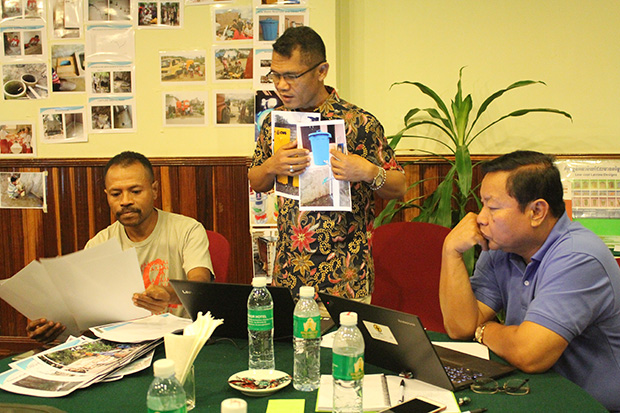This blog is the second in a four-part series focusing on CWS water, sanitation and hygiene programs in each of four Asian countries where we work. (Read Part 1: Cambodia if you haven’t yet!) This one focuses on Myanmar. It’s important to know that the acronym WASH stands for Water, Sanitation and Hygiene.
In talking with my colleagues from around southeast Asia at our learning exchange last week, I was reminded of the spectrum of challenges we face in this region. One example of this: while some places, like Cambodia, have water shortages, others face the challenge of having too much water!
My colleagues in Myanmar know the perils of flooding all too well: in the 15 communities where that team partners with families to improve their water, sanitation and hygiene, annual floods can put whole villages under four to six feet of water. Think about that: for most of you reading this blog, that’s right about your height – all in floodwater.
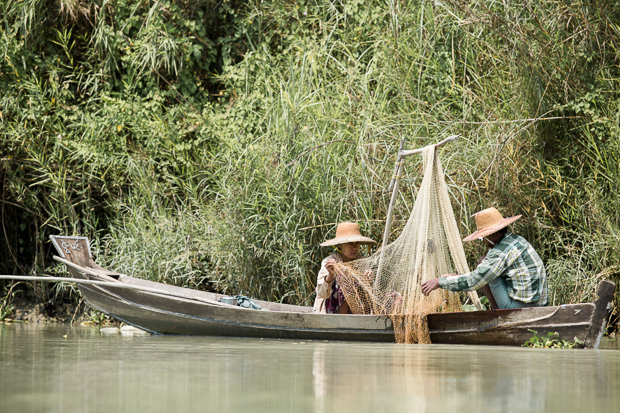
The mighty Ayeyarwady River is the defining element of this part of Myanmar. It serves as a highway for people, goods and news. Fishing is a source of income for many families. But when the river floods each year, it can have devastating consequences. Photo: Shanley Studio
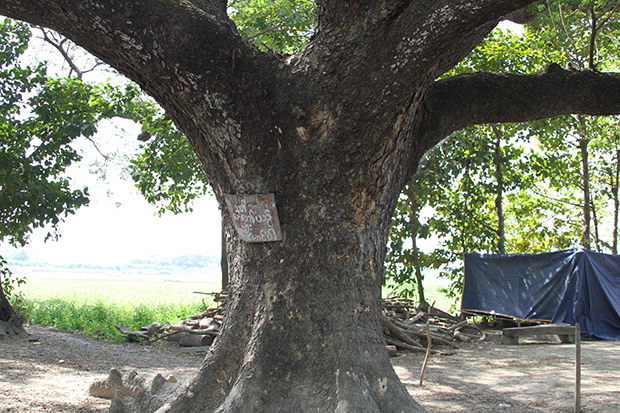
This may just look like a tree in a dusty clearing, but that sign proves otherwise. It encourages you to drive your boat slowly in the area. During the rainy season this ground will be covered in several feet of water.
Obviously this level of flooding brings with it a lot of challenges. One thing that’s really hard during the seasonal flooding is getting access to uncontaminated water and sanitary living conditions, especially when you’re trying to do it with WASH infrastructure like wells and latrines that are actually affordable for families here.
In talking with our Myanmar colleagues and our technical advisor, Lena, it was interesting to learn what the special challenges are in areas with high water tables and six months of flooding each year. Naturally, in such a landscape, there are very dire consequences for poor people, especially. Since there are so many poor families where we work – which is why we are there, of course – the challenge is especially large.
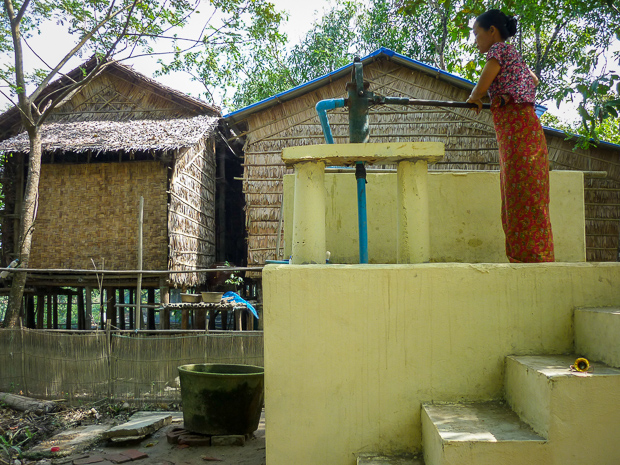
Elevated hand pumps like this one allow families to continue to access clean, safe water even during flooding.
Ever up for a challenge, CWS is working with communities to build raised-platform protected wells so people have year-round access to safe water. Separately, we are working to test safe, affordable sanitary latrines, and this is a continuing effort.
While understanding the different challenges our Myanmar colleagues face, I was glad to hear that these physical improvements are coupled with awareness-raising and education, which is showing positive results. Many families say they are now more aware of how they can improve their health through simple, positive sanitary practices. That includes things like washing their hands with soap before and after meals or after using the bathroom; using safe water from the new wells when they need it for cooking and drinking; and, of course, using latrines.
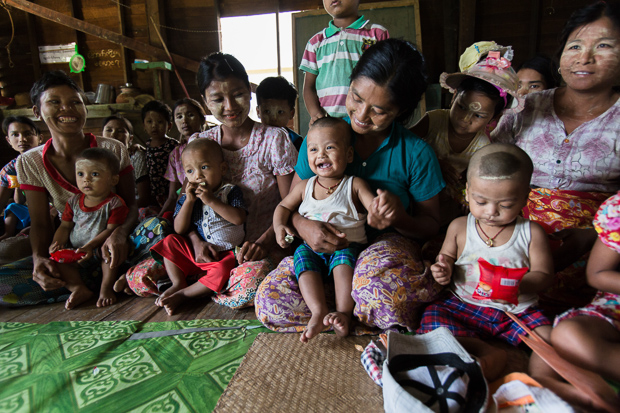
One of the key parts of our work in Myanmar is teaming up with parents of small children to protect their health and thus their futures. WASH is a big part of keeping kids healthy. Photo: Shanley Studio
When it comes to the future, our Myanmar team, in partnership with the Center for Affordable Water and Sanitation Technology, is also working hard to support people so they can maintain the latrines and wells themselves – through well-informed and technically-supported WASH Committees, for example. And, speaking of examples, we hope that our successes in these communities will serve as an example that can lead to wider change. As many as half (or, in some cases, more) of people in Myanmar don’t have access to safe drinking water and sanitary latrines. We are hopeful that changes for good, like those we are helping families and communities make, will help reduce and even end the bad impacts of poor sanitation and unsafe water on health and well being. In particular, we are keeping an eye on Myanmar’s high malnutrition and mortality rates among young children and continuing our programs specifically to help parents of young children.
Ek Sothea is the Grant Coordinator with the CWS Cambodia team.

